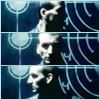REALITY television shows are being pushed out of favour by a new type of programme – unreality TV.
Wales-made Doctor Who and Torchwood as well as ratings winners Lost, Primeval and Life on Mars, have triggered our appetite for extreme escapist viewing. And US import Heroes, which gets its UK terrestrial premiere on BBC2 this week, will whet our appetite for this style of entertainment even further, experts predict.
Gill Hudson, editor of TV bible Radio Times, says people today can’t get enough of shows which mix up formerly “geek” chic genres.
“Show likes Doctor Who and Battlestar Galactica are all examples of a resurgence in mainstream interest in sci-fi and fantasy shows,” she says.
“Some would say it’s a straightforward case of success breeding success: let’s jump on the Doctor Who bandwagon and get some of the action for ourselves. Others would argue that great writing is the real driver; the genre is irrelevant.
Story continues
ADVERTISEMENT
“But another school of thought says that when we live in difficult times, the programmes we find especially compelling and comforting are the ones that convey a sense of empowerment: where apparently ordinary people can access extraordinary powers that allow them to take on and defeat the Forces of Darkness.”
“And lo, a new genre of “light” versus “dark” entertainment was born.”
Unreality TV is a new movement which pushes the normal boundaries of small-screen dramas.
This trend will also be seen soon in ITV 1’s Lost in Austen, a “frock of ages” romp in which a contemporary woman finds herself in the body of Elizabeth Bennett from Jane Austen’s 19th century classic Pride and Prejudice.
Then there’s the scheduled update of Frankenstein, also on ITV, in which the doctor is written as a female and, in development for the BBC, look out for Outcasts, a story about misfits in Space.
Then, of course, there’s the much-hyped Heroes which starts this Wednesday.
Elaine Penn, features editor of TV Choice magazine, says it’s a series which is going to take the entire nation by storm. “People at work have managed to get their hands on advance copies and it blew them away,” she said.
The Rev Professor Leslie Francis, a member of the British Psychological Society and director of the Welsh National Centre of Religious Education, says watching unreality TV can have a positive impact.
But, as proved in the Bangor University-based expert’s study of teenagers who watched more than five hours of television a day, it can contribute to an individual’s loss of control and lack of self-esteem.
“People will always be affected by stories,” he said. “But sometimes what they really need to see is what’s happening in the here and now.”
Subscribe to:
Post Comments (Atom)

No comments:
Post a Comment